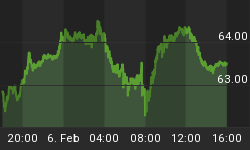Announcement Seen As Calming Influence
According to media reports, Janet Yellen will be formally announced Wednesday as the nominee to head the Fed. From The Wall Street Journal:
President Barack Obama plans to announce Wednesday he is nominating Federal Reserve Vice Chairwoman Janet Yellen to become the central bank's new leader. The nomination would conclude a long and unusually public debate about Mr. Obama's choice, a conversation that started last June when he said that Chairman Ben Bernanke wouldn't be staying in the post after his term ends in January.
Investors Caught In Middle Of Political Posturing - Again
The markets are beginning to realize that the major political parties learned very little during the 2011 debt downgrade talks. Our leaders seem to be headed down the same road again. The early reaction from the street was that the Yellen announcement's timing is meant to stem the stock market's recent decline.

We Can't Talk Until You Vote
President Obama is holding firm on his stance that negotiations can take place, but not until a clean resolution is passed to raise the debt ceiling. From The Wall Street Journal:
"I am happy to talk with [House Speaker John Boehner] and other Republicans about anything," Mr. Obama said he told Mr. Boehner in a phone conversation earlier Tuesday. "But I also told him that having such a conversation, talks, negotiations, shouldn't require hanging the threats of an economic shutdown or economic chaos over the heads of the American people."
We Can't Vote Until We Talk
Speaker of the House John Boehner says negotiations must take place before the debt ceiling resolution is passed. From Reuters:
House of Representatives Speaker John Boehner, a Republican, renewed his call for deficit-reduction talks with President Barack Obama, saying he was not "drawing any lines in the sand". "It's time for us to sit down and have a conversation," Boehner told reporters after meeting with Republican House members. "There are no boundaries here. There's nothing on the table, there is nothing off the table." Republicans emerged from the House meeting saying they would insist that deficit-reduction talks with Obama as a condition for raising the federal debt limit.
Leveraged Credit Markets Getting Nervous
The credit markets are begging to crack as negotiations, or the lack thereof, continue inside the beltway. The risk-on vs. risk-off ratio below tracks the demand for higher yielding bonds (JNK) relative to more conservative Treasury bonds (TLT). The bulls found support near point A, but as fears have increased the same trendline acted as resistance near point B.

Concerns about the government shutdown's negative impact on the economy are increasing by the day. If the talks do not calm the waters soon, increased selling pressure in the junk bond market could set off a large round of margin calls. From Bloomberg:
Hedge funds have amassed the greatest share of the $1.2 trillion U.S. junk-bond market since the credit crisis, raising concern bets with borrowed cash will accelerate losses when the Federal Reserve stops printing record amounts of money.
Don't Forget About The Fed
The next release of Fed minutes comes Wednesday at 2 p.m. ET. Fed releases are not impacted by the government shutdown. The markets will be looking for tapering clues. From The Wall Street Journal:
At present, the Fed has laid the groundwork to start reducing its bond purchases later this year or early next year. But that depends on how the economy weathers another recent soft patch, which has been complicated by feuding between Congress and the White House over fiscal policy. More clues will appear Wednesday when the Fed releases minutes of its Sept. 17-18 meeting.
Earnings Still Matter
It is easy to forget about discounted cash flows and PE ratios when the markets are obsessed with the Fed and the political process. Despite the distractions, earnings still matter. The knee-jerk reaction to Aloca's earnings was positive, with shares seeing a 1% pop in Tuesday evening's session. From Reuters:
Aluminum producer Alcoa Inc (AA.N) reported better than expected earnings on Tuesday, as strength at the unit that sells auto parts and other complex items helped offset lower metal prices. The company bumped up its global aluminum demand forecast for the heavy truck and trailer market to between 5 percent and 9 percent this year from 3 percent to 8 percent, citing improvements in Europe and China.

Investment Implications - Observable Shift
Fear related to the government shutdown and debt ceiling has produced an observable shift in the market's tolerance for risk. Consequently, our market model has called for numerous sell orders in recent weeks, allowing us to amass a sizable money market position. One example of observable evidence is the clear shift in the JNK/TLT ratio. The waning confidence in stocks is evident in the negatively sloping 50-day moving average on the S&P 500 (see C in chart below). If the S&P 500 fails to find buying support at the lower end of the trend channel defined by lines A and B, we will continue with our incremental risk-reduction strategy.

Market Has To Prove It
We always sell our weakest sisters first. That approach has allowed us to hold positions in emerging markets (EEM), foreign stocks (EFA), small caps (IJR), and technology. At some point investors will begin to believe a resolution will be crafted to re-open the government and avoid a default. When that point arrives, the evidence will begin to shift back toward the bullish end of the risk spectrum. We will begin to scale back in with our cash at a rate that is in line with the magnitude of the bullish improvement.
ETF Short List
When markets are weak, ETFs that drop less than SPY often serve as leaders during the next rally. The ETFs that make our relative strength short list represent a good place to start when the tide turns. The list includes EEM, EFA, Asia Ex-Japan (AAXJ), and emerging market bonds (EMB).















